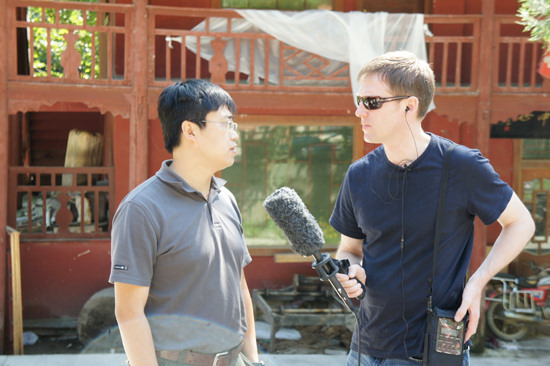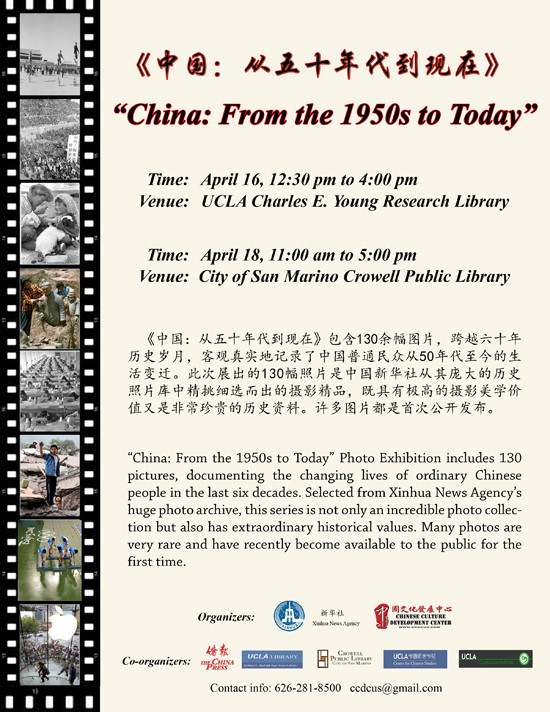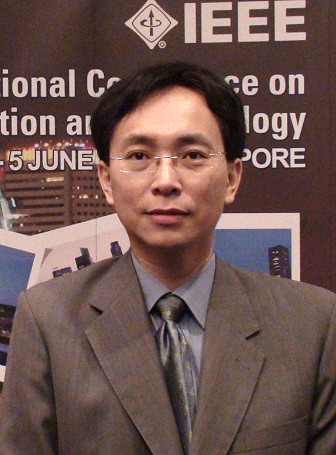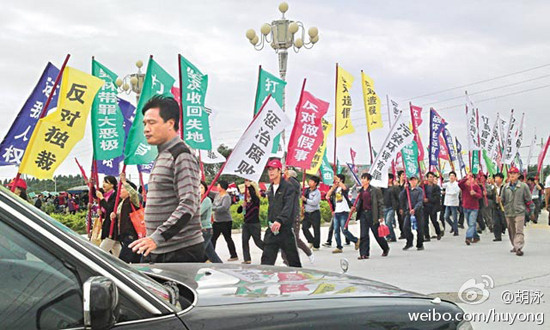Home > Events
Cost:Free and Open to the Public
www.international.ucla.edu/china
Cultural and Creative industries(CCI)are potentially among the most influential sunrise industries in the 21st century, therefore both advanced countries and Asia-pacific emerging countries are continuing to strengthen the development of those industries. With the rise of the Greater China economy, mainland China has gradually transformed itself from world factory to world market. China's government has decided to push cultural industries strategically as a key economic sector in the 12th 5-year plan. By promoting it to become a pillar industry of the national economy by 2015, China’s plan offers abundant opportunities for the industry. At the same time, the Taiwan authority has continued to cultivate the CCI as a major national development policy. Taiwan signed the Economic Cooperation Framework Agreement(ECFA)with China in 2010, substantially opening economic exchange and cooperation across the straits.
In the post-ECFA era, what are the charisma and market opportunities of Greater China’s experience economy? And how can China and Taiwan integrate mutually complementary advantages to form industrial value networks and enhance their international competitiveness to succeed in the global market? Prof. Tse-Ping Dong will offer an in-depth analysis of the prospects and outlook for the CCI from the perspective of the cross-strait co-opetitive strategy.
About the Speaker:Tse-Ping Dong, Ph.D.
Professor Dong, Associate Professor of College of Management at National Taiwan Normal University and adjunct Associate Professor of College of Fine Arts, earned his MBA and Ph.D. from the College of Management at National Taiwan University, 2011-2012 and is currently a Fulbright Visiting Scholar at UCLA and UCSD. He specializes in digital content and cultural & creative industries, industrial research of motion pictures, innovation & entrepreneurship and investment, intellectual property and Asia-Pacific business strategies. He is particularly interested in cross-disciplinary research integrating business management, arts, technology and law. Professor Dong has published extensively, including more than 20 papers in several renowned international journals(SSCI/SCI/TSSCI/EI rank).
The Challenge of Covering a Fast-Changing China
遍及在瞬息萬變中國的挑战

Wednesday, April 18, 2012
12:30 PM - 2:00 PM
Presentation Room 11348 YRL
UCLA Charles E. Young Research Library
Pre-registration is required
A networking reception will follow the event
How is China’s economy changing and how is this affecting its people and the world? What are the biggest obstacles and most exciting aspects of reporting on this increasingly important topic? These are the kinds of issues to be discussed in a conversation between journalist and editor Angilee Shah, and Rob Schmitz, American Public Media's Marketplace China correspondent, who along with covering a host of important stories, related to everything from labor rights to education to the rise of consumerism, played the key role in exposing the fabrications in Mike Daisey’s account of Foxconn factories on This American Life and then was featured in that show’s much discussed retraction episode.
About the participants:
Rob Schmitz, APM's Marketplace China Correspondent, is based in Shanghai. He joined Marketplace in 2010. Prior to that, Schmitz was the Los Angeles bureau chief for KQED’s The California Report. He’s also worked as the Orange County reporter for KPCC, and as a reporter for MPR, covering rural Minnesota. Prior to his radio career, Schmitz lived and worked in China; first as a teacher in the Peace Corps, then as a freelance print and video journalist.
Angilee Shah has reported from across Asia, including China, Thailand, Indonesia and Sri Lanka, and was a South Asian Journalists Association Reporting Fellow in 2007/2008. Shah is the co-editor with historian Jeffrey Wasserstrom of of the forthcoming book Chinese Characters:Fast-Changing Lives in a Fast-Changing China.
About APM’s Marketplace:
American Public Media’s Marketplace reports on business, the economy and money as they affect people every day. The portfolio reaches 9.5 million listeners each week on more than 500 public radio stations through its award-winning news shows:Marketplace Morning Report; Marketplace; Marketplace Money; and Marketplace Tech Report. For more information on Marketplace, please visit marketplace.org.
Special Instructions:
Pre-registration is required.
UCLA Parking instructions:http://bit.ly/howtoparkatucla
Cost:Free and Open to the Public
china@international.ucla.edu
www.international.ucla.edu/china
Sponsor(s):Center for Chinese Studies, Anderson Center for Global Management
China:From the 1950s to Today
A photo exhibit of 130 pictures that document the changing lives of ordinary Chinese people in the last six decades.

Monday, April 16, 2012
12:30 PM - 4:00 PM
UCLA Charles E. Young Research Library
The UCLA Richard C. Rudolph East Asian Library presents the photo exhibit “China:From the 1950s to Today” in the Charles E. Young Research Library, at the Conference Room(Room 11360, YRL), on Monday, April 16, from 12:30 to 4:30 p.m. Co-sponsored by the UCLA Center for Chinese Studies and the UCLA Confucius Institute, the exhibit is open to the public and free of charge. A brief opening ceremony will take place at 12:30 p.m, at the Presentation Room(Room 11348, YRL), followed by a special presentation about the exhibit by Xiaobo Chen, senior photo editor of Xinhua News Agency, and Yu Liu, chief editor of the international photograph department of Xinhua News Agency.
“China:From the 1950s to Today” features 130 pictures documenting the changing lives of ordinary Chinese over the past six decades. Selected from Xinhua News Agency’s huge photo archive, the images are remarkable for their quality as well as their historical value. Many are very rare and are being shown to the public for the first time. The exhibit was organized by China Photo Services of Xinhua News Agency and the Chinese Culture Development Center.
To RSVP, please contact Hui Li at lihui@library.ucla.edu or 310.206.9606.
Sponsor(s):Center for Chinese Studies, Confucius Institute
The Emerging Cultural and Creative Industries in the Greater China Economy:The Cross-strait Co-opetitive Strategy

Thursday, April 19, 2012
4:00 PM - 5:30 PM
Bunche Hall, Room 10367
Cultural and Creative industries(CCI)are potentially among the most influential sunrise industries in the 21st century, therefore both advanced countries and Asia-pacific emerging countries are continuing to strengthen the development of those industries. With the rise of the Greater China economy, mainland China has gradually transformed itself from world factory to world market. China's government has decided to push cultural industries strategically as a key economic sector in the 12th 5-year plan. By promoting it to become a pillar industry of the national economy by 2015, China’s plan offers abundant opportunities for the industry. At the same time, the Taiwan authority has continued to cultivate the CCI as a major national development policy. Taiwan signed the Economic Cooperation Framework Agreement(ECFA)with China in 2010, substantially opening economic exchange and cooperation across the straits.
In the post-ECFA era, what are the charisma and market opportunities of Greater China’s experience economy? And how can China and Taiwan integrate mutually complementary advantages to form industrial value networks and enhance their international competitiveness to succeed in the global market? Prof. Tse-Ping Dong will offer an in-depth analysis of the prospects and outlook for the CCI from the perspective of the cross-strait co-opetitive strategy.
About the Speaker:Tse-Ping Dong, Ph.D.
Professor Dong, Associate Professor of College of Management at National Taiwan Normal University and adjunct Associate Professor of College of Fine Arts, earned his MBA and Ph.D. from the College of Management at National Taiwan University, 2011-2012 and is currently a Fulbright Visiting Scholar at UCLA and UCSD. He specializes in digital content and cultural & creative industries, industrial research of motion pictures, innovation & entrepreneurship and investment, intellectual property and Asia-Pacific business strategies. He is particularly interested in cross-disciplinary research integrating business management, arts, technology and law. Professor Dong has published extensively, including more than 20 papers in several renowned international journals(SSCI/SCI/TSSCI/EI rank).
Cost:free and open to the public
Sponsor(s):Center for Chinese Studies, Fulbright Program, Asian Languages and Cultures
The Internet and Social Mobilization in China

Monday, April 23, 2012
4:00 PM - 5:30 PM
Royce 243
Professor Hu will discuss how the Internet helps build links and facilitates collective actions among Chinese people who are living in a social reality where freedom of expression, of association and of assembly is limited. In a situation like this, Internet mobilization becomes an indispensable, and often, the only viable way of launching Chinese style resistance.
Bio
HU Yong is an associate professor at Peking University’s School of Journalism and Communication, and a well-known new media critic and Chinese Internet pioneer.
Before joining the faculty of Peking University, Hu Yong has worked for a number of media sources for over 15 years, including China Daily, Lifeweek, China Internet Weekly and China Central Television. He is active in industry affairs as he is co-founder of the Digital Forum of China, a nonprofit organization that promotes public awareness of digitization and advocates a free and responsible Internet. He also co-founded Chinavalue.net, a leading business new media in China. In 2000, Hu Yong was nominated for China’s list of top Internet industry figures.
Hu Yong is a founding director for Communication Association of China(CAC)and China New Media Communication Association(CNMCA). His publications include Internet:The King Who Rules,the first book introducing the Internet to Chinese readers, and The Rising Cacophony:Personal Expression and Public Discussion in the Internet Age, documenting major transformations in the Chinese cyberspace.
Hu Yong is an active blogger/microblogger. His blog boasts a readership of 3.5 million, and his microblog has 800,000 followers.
Cost:free and open to the public
Sponsor(s):Center for Chinese Studies

















